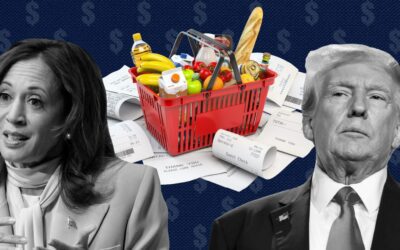
#image_title
CEO of the Wisconsin Economic Development Corp. cautions that full economic recovery from the pandemic is still uncertain.
While President Donald Trump took a victory lap after retail sales saw record growth in May, it could still be a long time before Wisconsin sees anything resembling a full recovery, according to Missy Hughes, secretary and chief executive officer of the Wisconsin Economic Development Corp.
“It’s not like we are killing it,” Hughes said in an interview with UpNorthNews.
The retail sector saw a massive 17.7 percent spike in May, the largest growth on record. Trump responded by tweeting it was “BIG DAY FOR THE STOCK MARKET, AND JOBS!” That was a week after the National Bureau of Economic Research officially classified the economy as in recession due to the impact of the coronavirus pandemic.
Wisconsin, while steadily recovering, has not enjoyed the same retail sector growth.
WEDC partnered with Brookfield-based Fiserv to study economic activity. They found that Wisconsin is seeing “strong recovery,” Hughes said, but retail activity is sitting at around just 80 to 90 percent of its levels in January and February before the pandemic hit. It is too early to know if the state’s retail industry will recover the remaining 10 to 20 percent in economic activity, Hughes said.
“We need to see what happens with those last 15 percent,” she said. “That is going to be really critical because we need to know: What have we lost in this process?”
The state’s unemployment numbers are better than the nation at large, Wisconsin is still struggling. The state’s seasonally adjusted unemployment rate at the end of May was 12 percent, down from 13.6 percent in April, according to the Department of Workforce Development. Nationally, May’s rate was 13.3 percent, according to the Bureau of Labor Statistics.
Federal Reserve Chair Jerome Powell told a Senate panel that those dire national numbers still pose a very real threat to the overall economy. As a result, “significant uncertainty remains about the timing and strength of the recovery,” Powell said.
As many as 35 percent of Wisconsin businesses are at risk of closing permanently if the current market conditions do not improve by mid-summer, an April study by the University of Wisconsin-Oshkosh found.
Certain sectors are practically guaranteed to recover, but others may not be as fortunate, Hughes said. And with consumer confidence being exceedingly low, it may well turn into a guessing game based on a combination of anecdotal evidence and surveys, Hughes said.
“We still do not know the long-term impact of the larger industry confidence,” Hughes said. “We will see construction, big equipment come back. The airlines will take years to recover. I have confidence in the short-term recovery but the long-term is still pretty unclear.”

Trump’s tariff and tax plan would raise taxes on 95% of Americans, report finds
In response to the report, the Harris-Walz campaign released an analysis of its own, outlining how Trump’s agenda would raise costs for nearly 2.5...

Trump’s economic plans would worsen inflation, experts say
Mainstream economists warn that Trump's plans to impose huge tariffs on imported goods, deport millions of migrant workers, and demand a voice in...

Harris wants to cap child care costs and expand the child tax credit. Trump’s solution? Tariffs.
Harris has proposed capping families’ child care costs to 7% of their income and offering families of newborns up to $6,000 in the first year of the...

Harris wants to lower grocery prices by taking on price gouging. Trump’s plan would increase prices.
Kamala Harris has said that she will call on Congress to pass a federal ban on price gouging and give the federal government more authority to...




